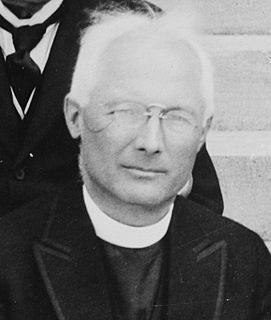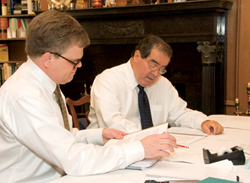A Quote by Samuel Taylor Coleridge
Words in prose ought to express the intended meaning; if they attract attention to themselves, it is a fault; in the very best styles you read page after page without noticing the medium. Works of imagination should be written in very plain language; the more purely imaginative they are, the more necessary it is to be plain.
Related Quotes
The definition of good prose is proper words in their proper places; of good verse, the most proper words in their proper places.The propriety is in either case relative. The words in prose ought to express the intended meaning, and no more; if they attract attention to themselves, it is, in general, a fault.
A word about 'plain English.' The phrase certainly shouldn't connote drab and dreary language. Actually, plain English is typically quite interesting to read. It's robust and direct-the opposite of gaudy, pretentious language. You achieve plain English when you use the simplest, most straightforward way of expressing an idea. You can still choose interesting words. But you'll avoid fancy ones that have everyday replacements meaning precisely the same thing.
The only thing going on is the progression of words and sentences across page after page and so suddenly we see this immersive kind of very attentive thinking, whether you are paying attention to a story or to an argument, or whatever. And what we know about the brain is the brain adapts to these types of tools.
In general, I would think that at present prose writers are much in advance of the poets. In the old days, I read more poetry than prose, but now it is in prose where you find things being put together well, where there is great ambition, and equal talent. Poets have gotten so careless, it is a disgrace. You can’t pick up a page. All the words slide off.
My feeling is that it's one of the very few things that comics can do that you really can't do in any other medium. I feel like the reader accepts all of these styles, and after a certain point you can flip the pages and see a character rendered very differently than you saw on an earlier page, and it's not jarring. It suggests things that you can't suggest just in the writing or in the plotting.
For me a page of good prose is where one hears the rain. A page of good prose is when one hears the noise of battle.... A page of good prose seems to me the most serious dialogue that well-informed and intelligent men and women carry on today in their endeavor to make sure that the fires of this planet burn peaceably.
The selective instinct of the artist tells him when his language should be homely, and when it should be more elevated; and it is precisely in the imperceptible blending of the plain with the ornate that a great writer is distinguished. He uses the simplest phrases without triviality, and the grandest without a suggestion of grandiloquence.
Every single person in the government swears an oath to the very same constitution, to abide by the laws in pursuance of this constitution, and they all have the responsibility to follow its plain words....If a judge makes a ruling that is contrary to the plain words of the Constitution, then it's not law, it's just his bad opinion!




































